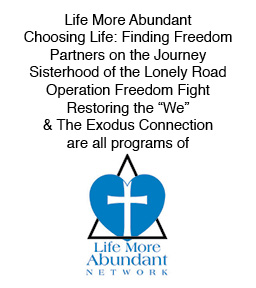There is scientific evidence that suggests that our genetic makeup can make us more vulnerable to addiction.
Maybe you can point to situations where addiction seems to run in a family. The addict’s parents, and maybe even their grandparents, have had their own struggles with addiction.
On the other hand, you may be aware of other examples that seem to refute this evidence. You may know an alcoholic whose parents are complete teetotalers. In the same way, a sex addict’s family may have no inclination toward any kind of compulsive sexual behaviors.
So, the question remains— is addiction hereditary or not?
ARE SOME PEOPLE DESTINED TO BECOME ADDICTS?
This is a complex issue. To start to understand it we must first realize that there is no specific “addiction gene.” There isn’t even a group of genes that definitively determines that someone will become an addict.
Our genetic mix may make us more susceptible, but there is no way that it seals our fate.
It’s much like being predisposed to other types of illnesses or ailments. It’s well known that if your parents are diabetic you have a stronger likelihood of developing the disease yourself. This pre-disposition, however, only increases your risk. It provides no guarantee that you will struggle with it too.
There are choices that you can make that will help you avoid, or at least significantly delay, the onset of diabetes. Creating a lifestyle that includes a healthy, controlled diet and exercise can, in many cases, effectively reduce, or even eliminate, the power of that heritage.
The same is true with addiction. Many factors—both inherited and environmental—help determine the likelihood that someone will become an addict. The general consensus is that about half of a person’s susceptibility to addiction can be linked to genetic predisposition. The other half is related to ineffective coping skills.
WE ARE TAUGHT HOW TO “DO” LIFE
While we are busy learning how to walk and talk and count to 100, we are also learning how to deal with conflict, disappointment and other struggles in life. Even if we’re never directly instructed on these things, we learn from the unspoken examples we see in our family.
If we learn that certain things should “never be spoken of again” we hone our ability to hide situations and issues.
When telling the truth isn’t honored or believed in our home, we learn to keep secrets.
If angry blow-ups are the normal way to deal with frustrations or fears, we will either grow up repeating that pattern or we will swing far from it by learning to stuff our anger.
These types of “solutions” help us survive in the moment. Over the long haul, however, they end up creating shame or isolation. This interferes with developing a healthy self-esteem and the strong interpersonal relationships that we need to thrive. We find other counterfeit ways — often addiction — to help us feel better.
If we “teach” our children to handle the struggles of life in the same way we do, we very often, unknowingly, end up pushing them toward addiction as well.
So yes . . . addiction is passed down through the generations—both genetically and environmentally.
IS THERE ANY WAY TO CHANGE IT?
The best thing we can do for both ourselves and our children is to work on improving our life skills. We must commit to learning to deal with stress, disappointment, anger, rejection, and all the rest in more authentic and healthier ways. It will lessen the grip of addiction in our own lives and help break destructive generational patterns. By modeling and teaching more effective ways to deal with life, we actually help our children become far less prone to the lures of addiction.
We do have choices. We don’t have to continue down the path that was set by our ancestors. Even though it is seldom easy, we can allow God to help us change those early patterns. We can be the ones that can begin to create a new and healthier path for all of us.
Do not conform any longer to the pattern of this world, but be transformed by the renewing of your mind. Then you will be able to test and approve what God’s will is—his good, pleasing and perfect will. —Romans 12:2
TODAY’S CHAT: What could you change that might reduce your children’s vulnerability to addiction?
Image courtesy of stockimages at FreeDigitalPhotos.net



Leave A Response